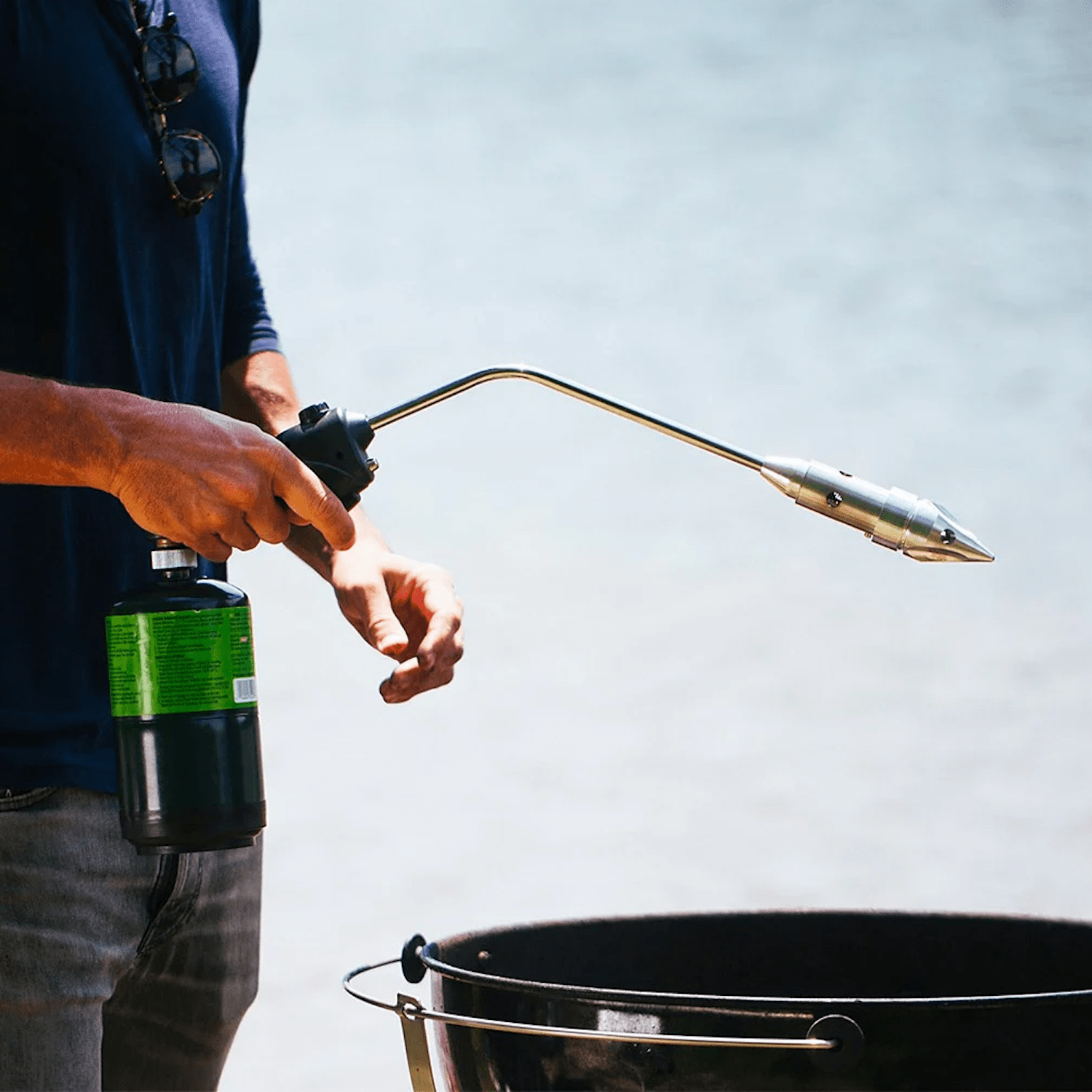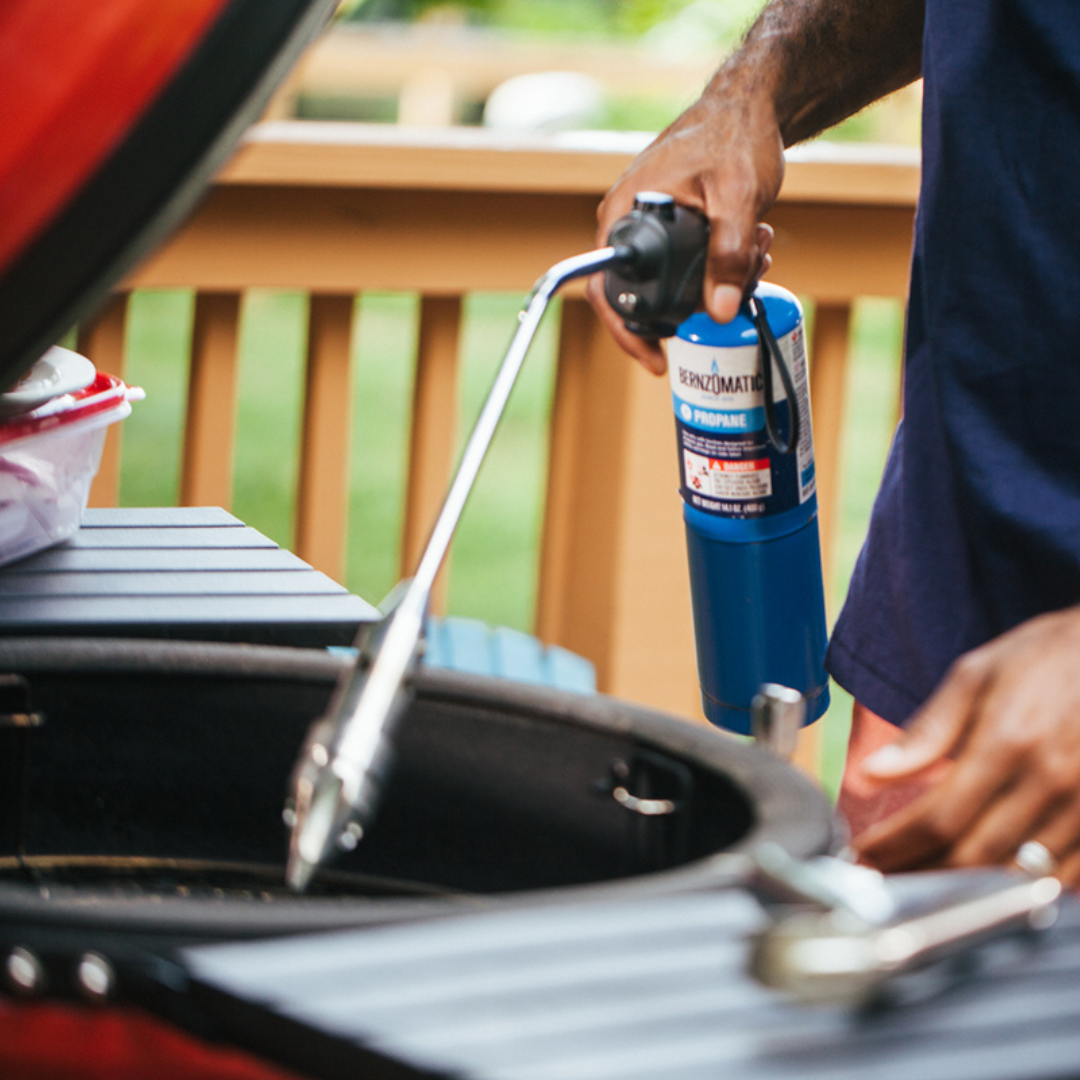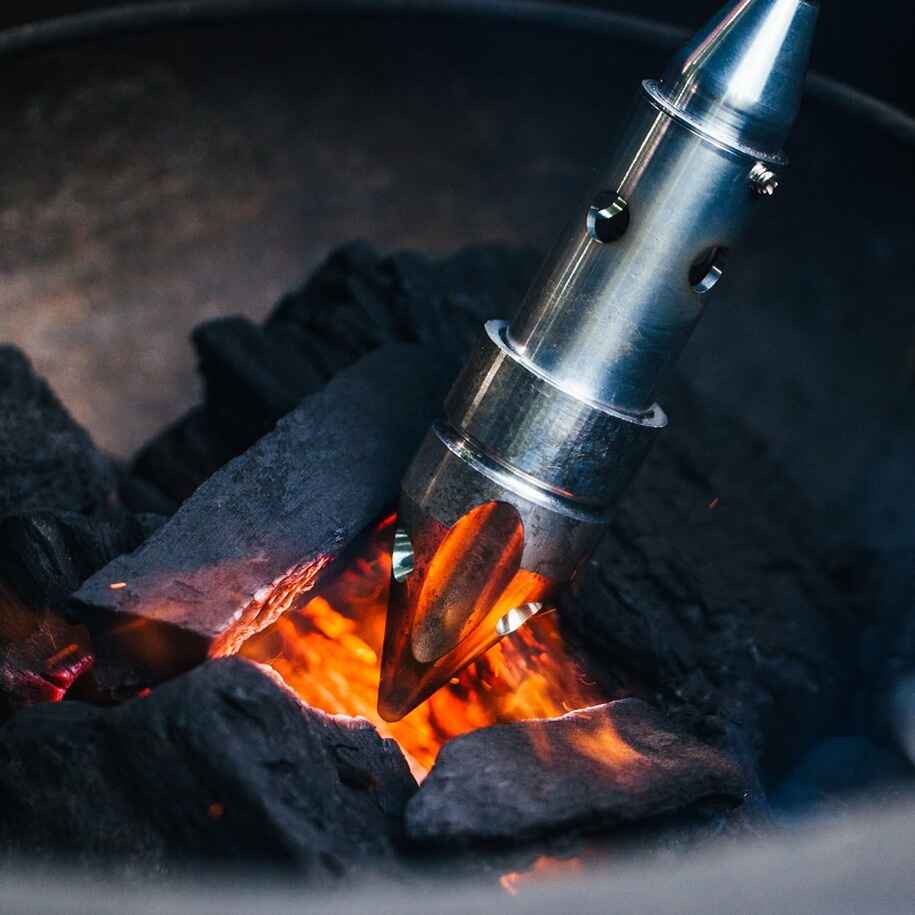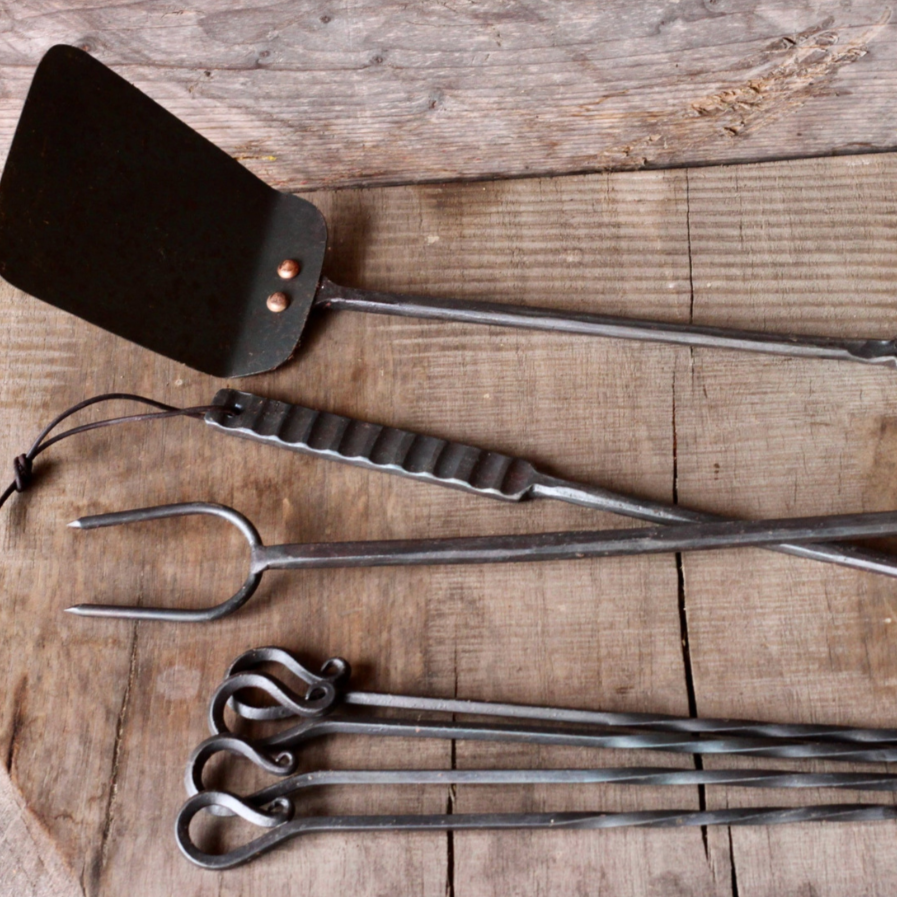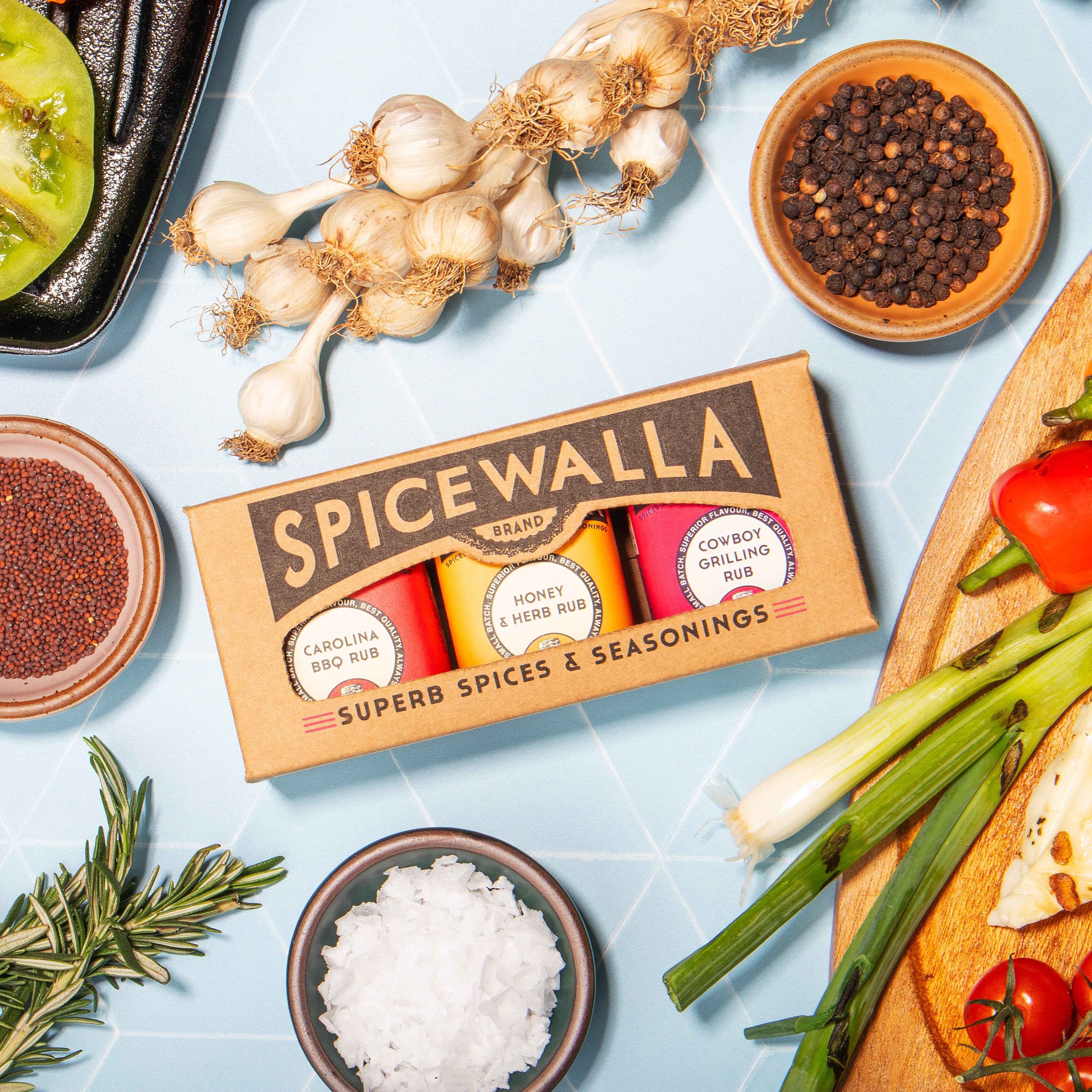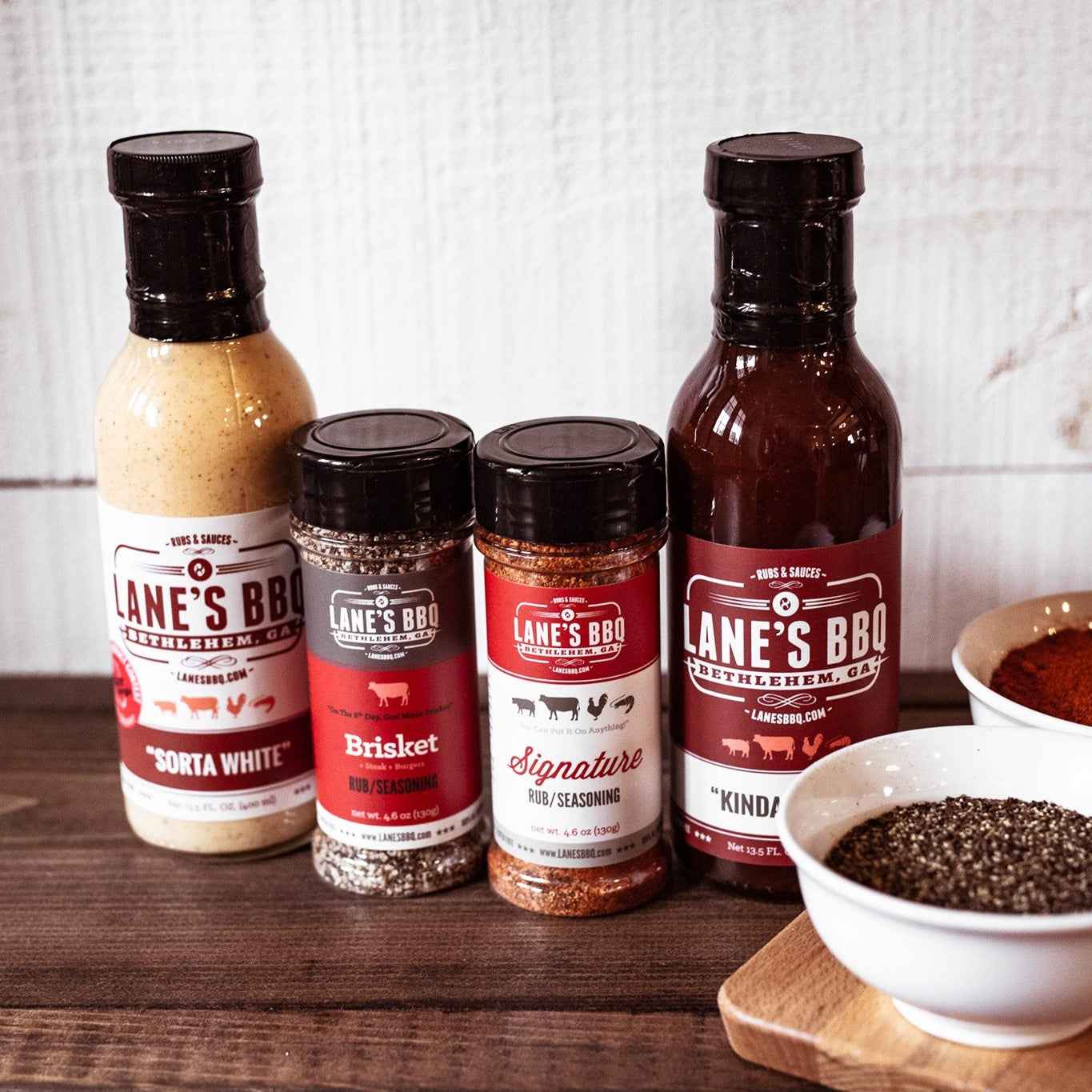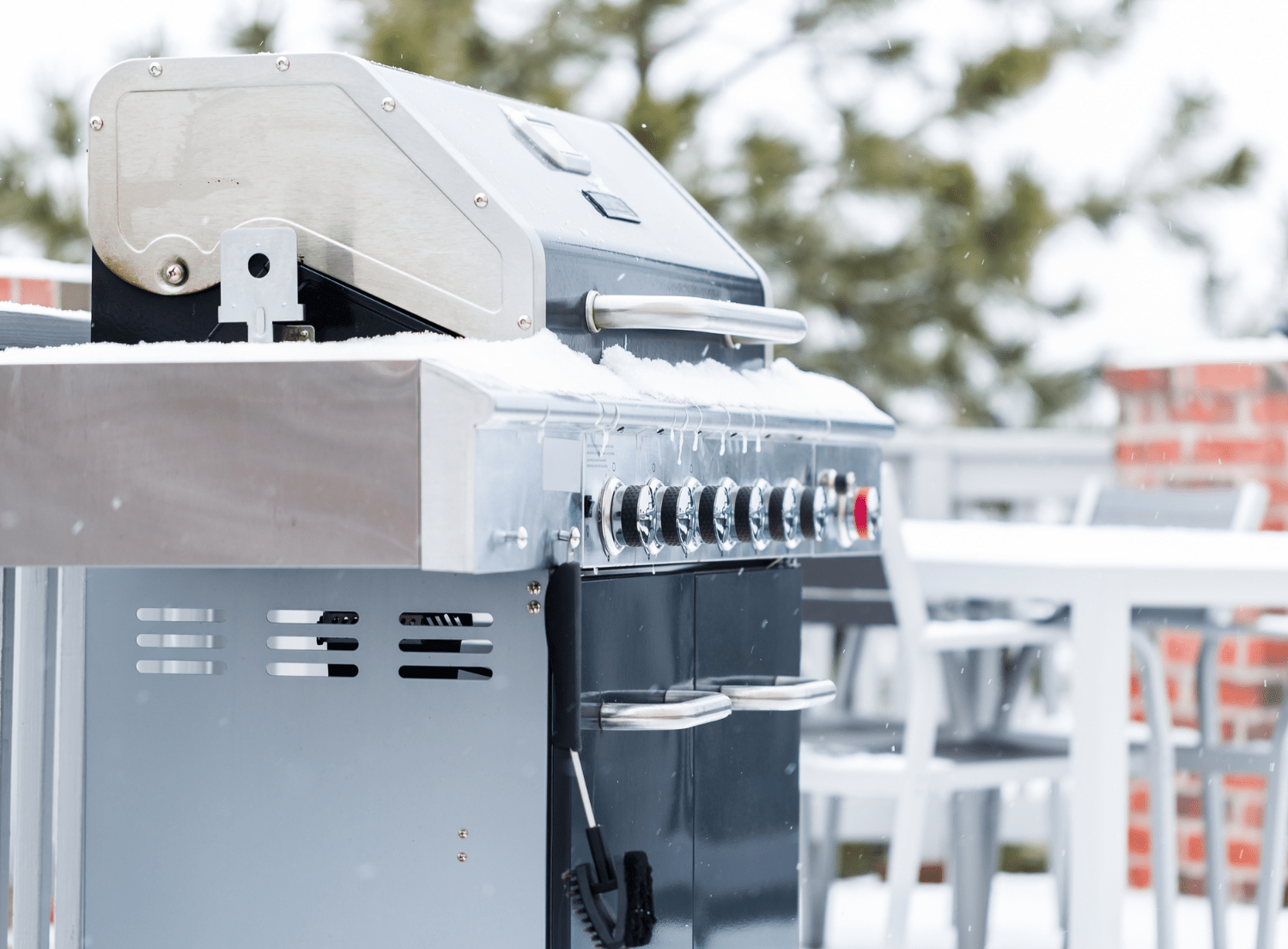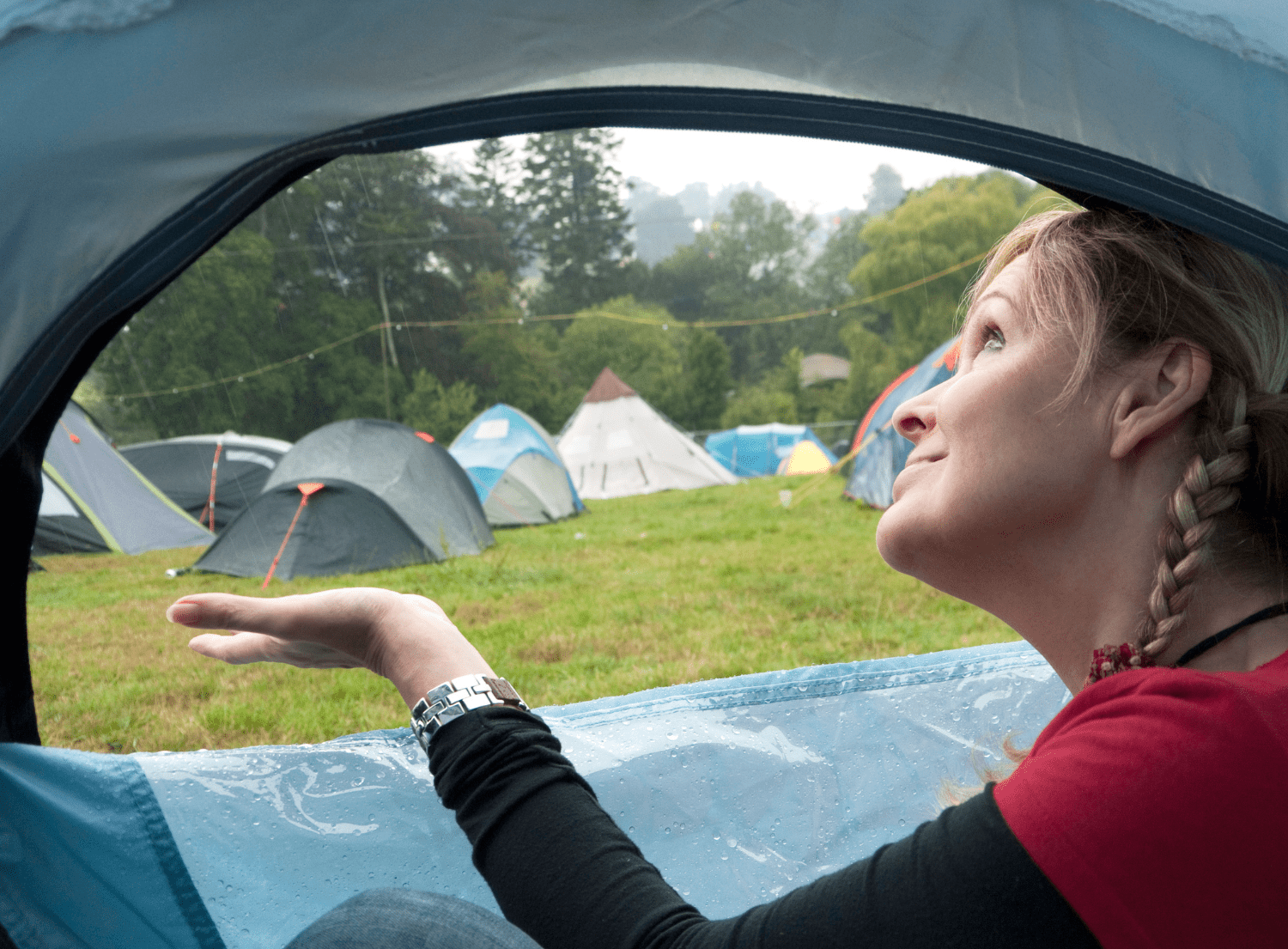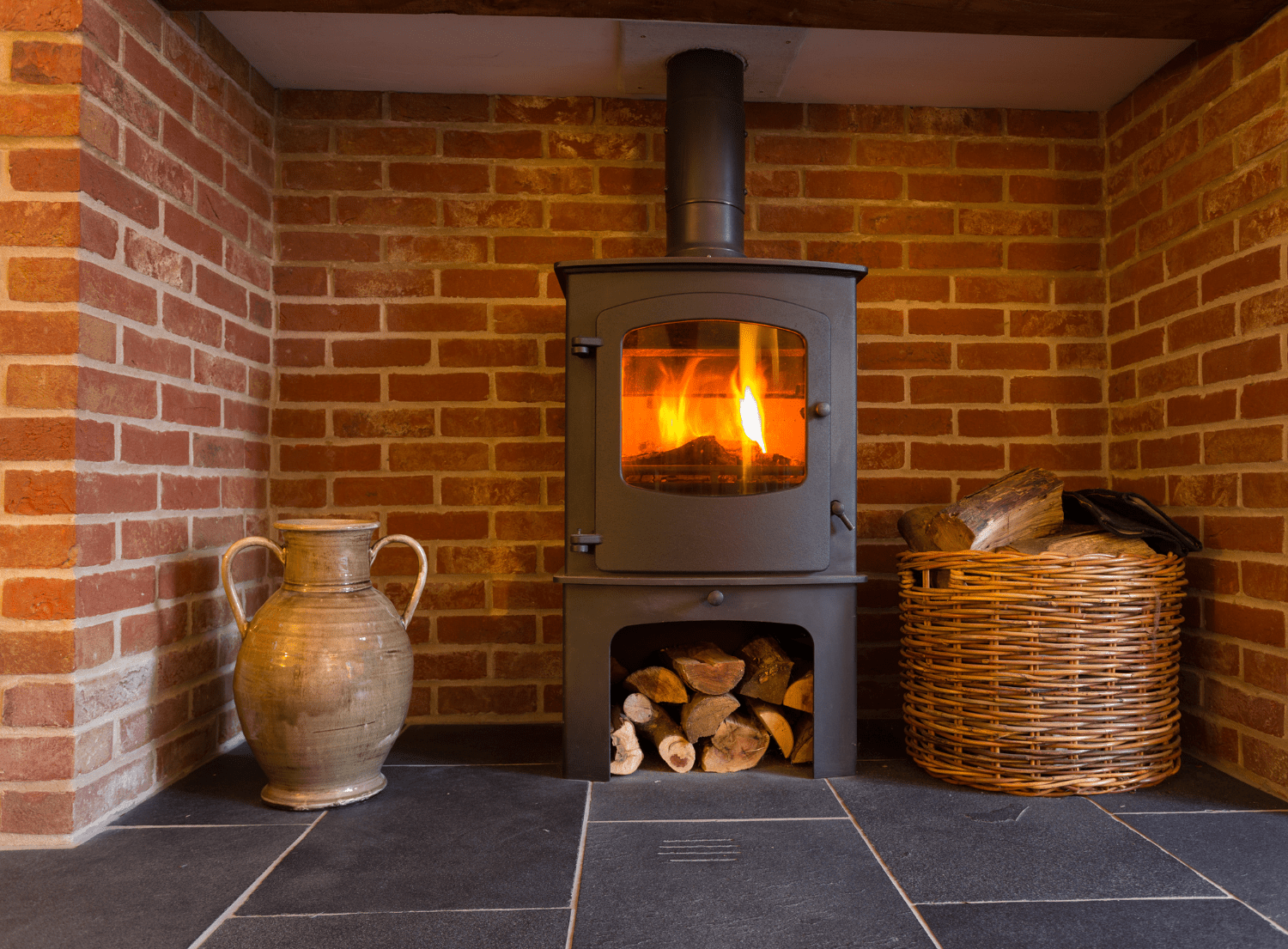As grilling fanatics, we love the sizzle of thick steaks, the aroma of barbecued veggies, and the camaraderie around the grill. For us, the allure of grilling extends beyond warm, sun-soaked days; it’s a year-round passion.
Yet, as the summer fades and cold weather settles in, the question arises: how does cold weather affect grilling and when does it become impractical or even unsafe? Winter grilling is possible but it forces us to confront new challenges in pursuit of our culinary delights.
In this blog, we delve into the art of cold-weather grilling, exploring the thresholds of temperature, safety precautions, and the ultimate question: when is it truly too cold to grill in winter? Read on to discover our top tips for grilling during the colder months.
Grilling in Winter: Embracing the Chill
For some, cold weather grilling offers a distinct charm. You only have to imagine a quiet snowfall as steaks sizzle or the aroma of smoke mingling with crisp air to see why. Yet for others, grilling outdoors in cold temperatures seems impractical or downright uncomfortable. While cold weather affects grilling in various ways, the satisfaction of a well-grilled meal amid winter’s chill is an experience that elevates the art of grilling to a whole new level.
How Do Colder Temperatures Affect Grilling?
Cold weather presents unique challenges for outdoor grilling, impacting various grill types differently. To illustrate, thin-walled grills may struggle to reach and retain optimal cooking temperatures. In general, cold temperatures can affect gas flow, heat retention, and cooking times, posing increased difficulties. For example, frigid temperatures can impede gas flow in propane grills, resulting in slower heating or even gas freezing. In addition, heat loss will occur more rapidly which demands additional adjustments in cooking techniques.
Combatting these issues requires a combination of understanding necessary preparatory measures, adapting during grilling, and implementing post-grilling practices in colder temperatures. For example, you may need to have extra fuel on hand to compensate for heat loss or utilize insulating grill covers to preserve warmth. Plus, you'll likely have to diligently monitor temperatures to ensure even cooking or regularly check gas lines for leaks or blockages that may hinder flow.
Tools and Preparations for Winter Grilling
To safely and effectively embrace cold weather grilling, follow these tips for grilling safely:
Prepare your Grill
Grilling in winter means making sure your grill is functioning at its best. Before using it, inspect your gas grills meticulously. You should also check hoses for cracks and assess burners, jets, and gas lines for potential blockages that impede gas flow. If your lid is frozen shut, gently defrost it by relocating the grill to a warmer area or using a hair dryer for quicker thawing. Regularly cleaning and lubricating your grill with vegetable or canola oil can help ensure hassle-free winter grilling experiences.
Factor Cook Time and Monitor Temperature
As cold-weather grilling takes a little longer than grilling in warmer weather, we suggest opting for quicker-grilling foods when cooking outdoors. To minimize exposure to the cold, it's better to reserve dishes needing frequent flipping or basting for warmer days. It’s especially important to check on meat temps when grilling in winter as longer cook times can make it difficult to determine doneness. We recommend using a meat thermometer to ensure your meat is cooked through. Finally, be sure to give your grill extra time to preheat.
Take Advantage of Daylight
Cold weather grilling means shorter daylight hours which means earlier starts. Consider checking sunset times before you begin to ensure better visibility. When grilling after dusk, adequate lighting becomes crucial for safety. We recommend installing outdoor lighting for the grill area or attaching a light to the grill handle to illuminate the cooking surface for clearer visibility while cooking.
Dress for the Colder Weather
This might sound obvious but your comfort directly impacts your cooking focus. While it's important to layer up for warmth, it's equally important to ensure your bulky clothes don't dangle near the flames. Opt for layered attire without loose ends near the fire. Additionally, consider wearing warm gloves that grant mobility for tool handling. Fingerless gloves make a great option for grilling in cold weather because they provide warmth and dexterity for effective grill management.
Keep the Lid Closed
A key practice of cold-weather grilling is to keep the grill lid closed as much as possible during the cooking process. You only want to open it when absolutely essential. This is because retaining heat within ensures quicker, uniform grilling and conserves fuel. Even a brief peek at food extends the time to regain optimal temperature.
When is it Too Cold to Grill Outside: Safety First
Deciding when outdoor grilling becomes impractical or hazardous depends on factors such as your personal comfort, equipment functionality, and safety. That said, severe cold, intense winds or unsafe weather conditions may render grilling outdoors unsafe or impractical.
If freezing temperatures affect grill performance or compromise cooking quality, it might be time to move the party indoors. Nonetheless, equipped with proper preparation, suitable gear, and safety measures, many grill enthusiasts persist in grilling outdoors in colder weather, adjusting to conditions for a rewarding culinary adventure.
We also don't recommend using a charcoal grill in the garage if it's too cold outside.
Lighting your Grill the Easy Way
Thanks to the Rocketfire Torch, you can effortlessly combat colder temperatures and get your grill lit in no time. Its high-intensity flame swiftly ignites charcoal or gas grills within seconds which is ideal for quick grill starts in frosty weather. Take advantage of its efficiency, reliability, and convenience so that you can experience a safe and successful winter grilling adventure. Just make sure to keep your propane in a warm place, as the RocketFire will have trouble lighting with cold gas.

